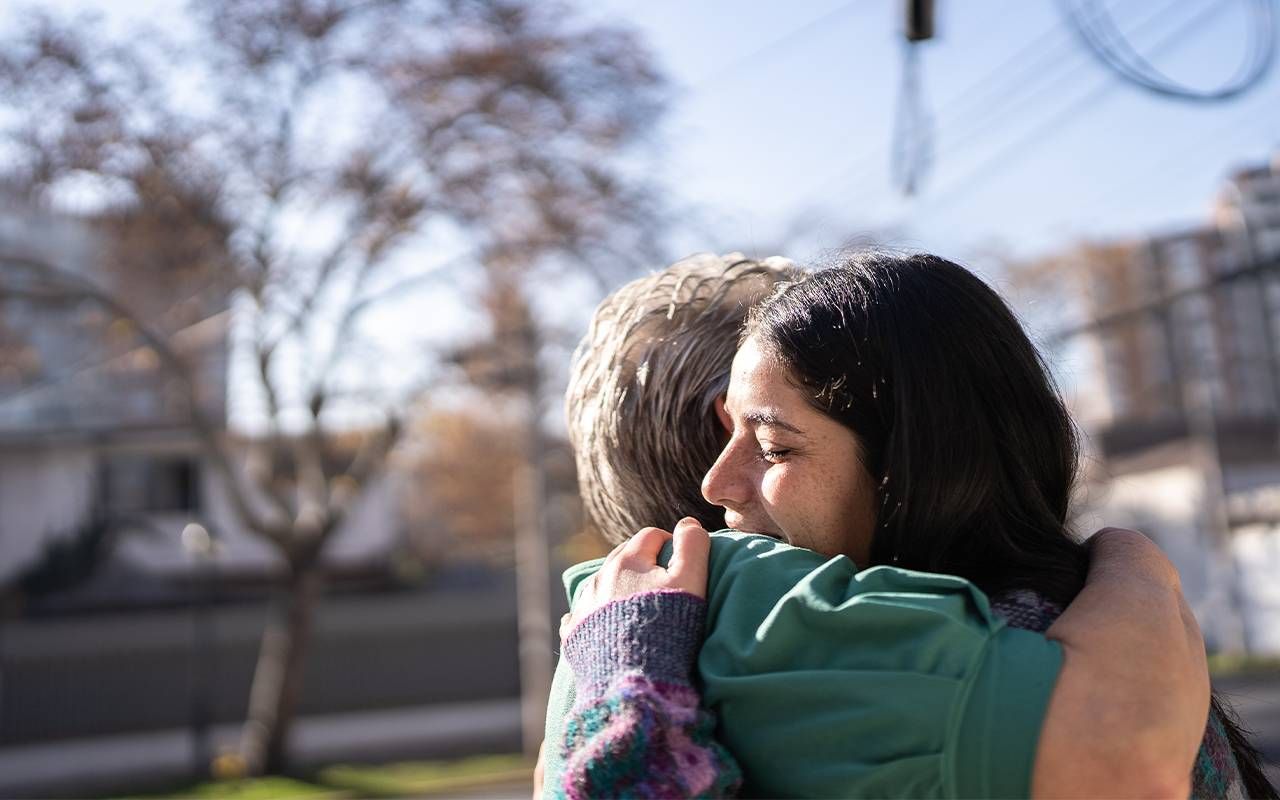Coping With Cumulative Trauma Can Start a New Conversation
Good quality care is important, but we also need a community
In early March 2020, my mom's Meniere's Disease episodes intensified in a hotel room in Ann Arbor, Michigan, where we tried to keep body and soul together. My job prospects remained uncertain as we wondered if we would lose our housing.

I was operating in fight or flight mode, and the toll of homelessness and financial trauma, on top of my worries about my mom's health, was a double whammy. Like millions of millennial caregivers like me (9.2 million as of 2020, according to new data from AARP), I wanted everything to be okay.
I wanted my mom to be okay. As her son and caregiver, I felt I had already let Mom down once after being evicted from our Minnesota apartment in 2019. I wanted to ensure my mom was safe and well and had access to her medications and other resources to get through the day.
Instead, history was repeating itself — eviction was imminent if we couldn't catch the balance. Failure was inevitable. I began apologizing to my mom, knowing I had let her down again. Then, on March 11, the World Health Organization declared COVID-19 a global pandemic.
The country and the world shut down, countless lives and routines were upended. A complex situation suddenly became calamitous, and the amount of trauma to be processed resembled an incomplete first draft of the next great American novel.
I wondered what I could do to keep my mom safe, considering the things happening around me that I could not control. Three years, two states and a time zone change later, with the public health emergencies set to expire, aid programs at an end, and a rise in inflation, I'm still asking that same question.
I worry about the rug being pulled from underneath us, resulting in my mom facing the equivalent of a death sentence. Even though I continue to try to find work and put myself out there, I have trouble concentrating on tasks, and I feel increasingly isolated. Some days, I'm lucky to make it through the day without wanting to cry.
I know the pandemic hasn't fully gone away, and neither has the trauma. However, I'm not the only one who still deals with it.
Fear Is a Blunt Instrument
When Maree Teesson, professor and director of the Matilda Centre for Research in Mental Health & Substance Use at the University of Sydney in Australia, saw the declaration from the WHO in 2020, she saw the disconnect that occurred as the public began to practice social distancing.
As the pandemic went on, instead of improvements, things got worse, even as the world started to open up again. That message is reflected in a recent study by Teesson, the Centre, and others.
I know the pandemic hasn't fully gone away, and neither has the trauma. I'm not the only one who still deals with it.
Australian researchers conducted a study that considered the global impact of the pandemic on mental health. The study, published in the Journal Frontiers of Psychiatry, looked at the current global literature on the subject and found that anxiety and depression increased significantly compared to pre-pandemic levels.
Researchers added that young people, those who were pregnant and postpartum, and those hospitalized with COVID-19 had heightened mental health impacts. "What worried me about what we found was rather than a recovery phase, we have had more crises," Teesson, who also chairs Australia's Mental Health Think Tank, said in a telephone interview.
"We've got evidence that COVID left us with heightened levels of poor mental health," Teesson added, as the Centre's study was not alone in finding an increase in depression, anxiety and trauma.
In 2022, researchers from Georgia State University in Atlanta considered whether the pandemic strain could lead to stress disorders. After surveying 745 people, researchers found that the pandemic was an independent source of traumatic stress.
The link between COVID-19 traumatic stress and post-traumatic stress disorder was stronger in those with cumulative trauma. They also found an association between increased PTSD symptoms and high levels of cumulative trauma for all groups when considering race and ethnicity, except Asian Americans.
Researchers noted that Asian Americans were less likely to report psychological distress than other groups (research was also conducted while Asian Americans encountered increased violence and discrimination.)
At the time of the study, Jeff Ashby, co-director of the Ken Matheny Center for the Study of Stress, Trauma, and Resilience at Georgia State, said the anxiety of the unknown could be harmful. "People have what's known as a 'trauma load,' and part of what you're doing is reactivating traumatic experiences from previous situations," Ashby said in a university news release.
"So that would suggest that the experience of fresh trauma would be more acute in higher-risk populations."
Teesson said that the result of the unknown caused an increase in fear among the population, noting that what keeps us mentally healthy is a connection, which was absent to prevent the spread of COVID-19.
"Fear is a blunt instrument," Teesson said. "We turned on the fear as a motivator. It was hard to switch off again." Teesson's study considered financial trauma, increased disconnection and lack of mental health services.
Make time to connect and have that conversation. Trust me. You'll make someone feel better and wanted, which will also highlight your day.
While the study noted that these aspects were particularly harmful to mental health in youth, other groups have been impacted internationally, including in the U.S., causing detrimental effects on the population as a whole. "We all wish it were turning on a tap and turning it off again," Teesson said.
"But it still drips. Fear and social disconnection are blunt [instruments] and impact many groups."
Indeed, in a March 2021 news conference, Dr. Tedros Adhanom Ghebreyesus, the Director-General of the WHO, said the mental health impact due to the pandemic would be felt for years to come.
"After the Second World War, the world has experienced mass trauma because the Second World War affected many, many lives," Ghebreyesus said. "Now, even with this COVID pandemic, with bigger magnitude, more lives have been affected; almost the whole world is affected; each and every individual on the surface of the world actually has been affected."
"That means mass trauma, which is beyond proportion, even bigger than what the world experienced after the Second World War, and when there is mass trauma it affects communities for many years to come."
The importance of Teesson's research now leads to another discussion – what can be done to help those impacted by trauma from the pandemic cope?
While the study says that work must be done to address the issues of financial trauma, disconnection and lack of mental health services by policymakers, Teesson says the impact of loneliness and disconnection that stemmed from the pandemic can be addressed in other ways too, and that should be reflected in the conversation in enhancing the population's mental health.
"Many people experienced loneliness and disconnection due to the pandemic," Teesson said. "There was increased empathy for what it felt like. Therefore, are there ways we can introduce actions that address disconnection and loneliness? That will impact mental health."
As far as coping, Teesson adds one of the most important things is having a sense of community, whether the trauma comes from the pandemic or natural disasters like flooding or fires. The simplest thing — a conversation — can go a long way.
"We are social animals — what keeps us mentally healthy is a connection," Teesson said. "Good quality care is important, but we also need a community."
In a time where we are encouraged to be kind to one another, our collective emergence from a global pandemic is a reminder for us to be considerate of others and not to brush people aside, whether they are isolated, whether they are a caregiver for someone like I am, or whether they are trying to cope with what's next and could use a friend.
So, make time to connect and have that conversation. Trust me. You'll make someone feel better and wanted, which will also highlight your day.


